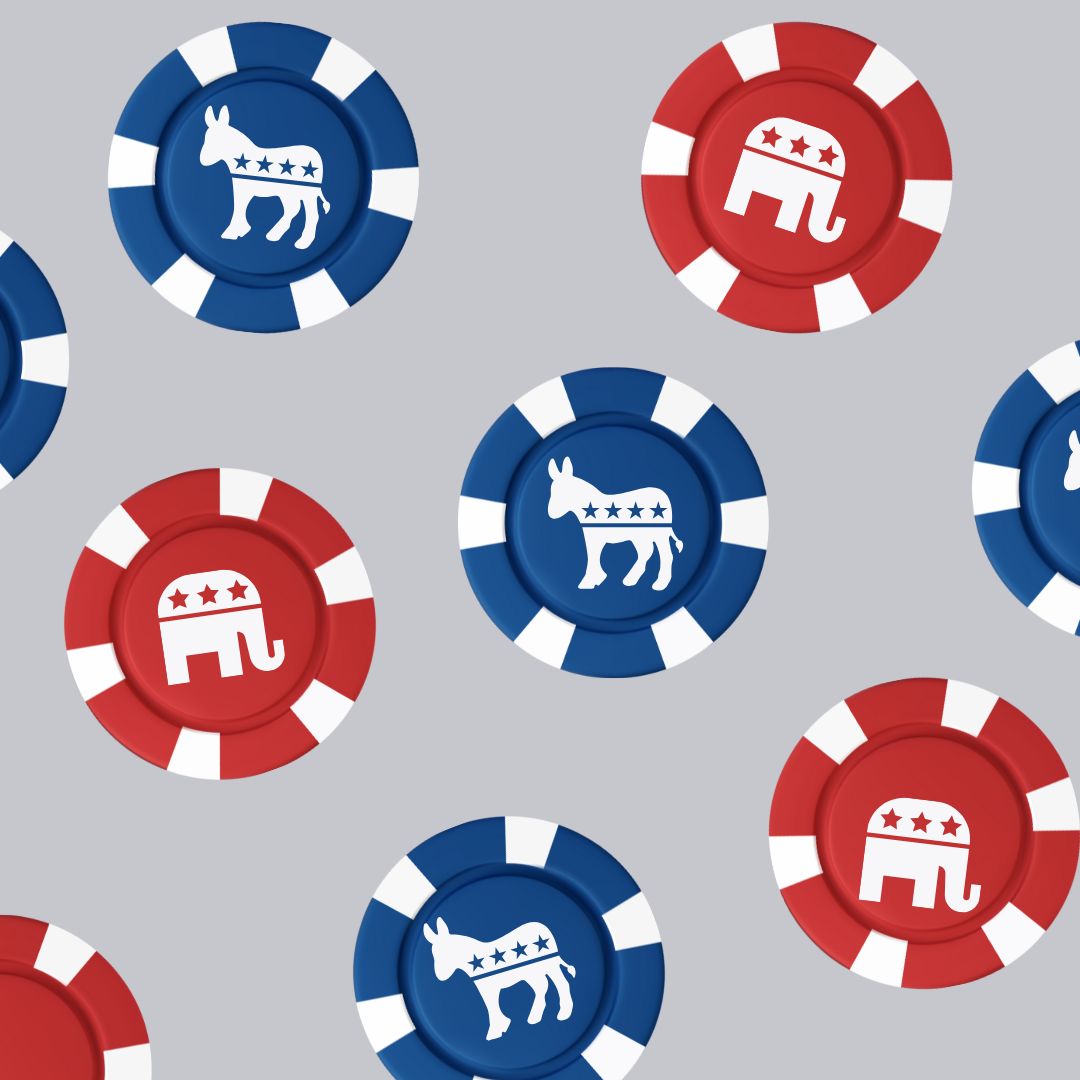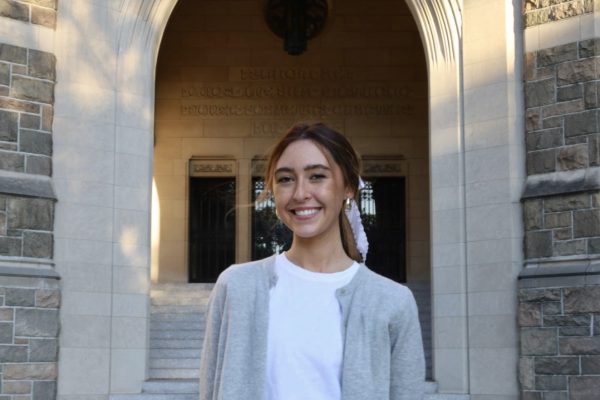The 2024 presidential election is less than two weeks away, and an unusual player is increasingly shaping polling narratives and your uncle’s pocketbook this cycle: political gambling. Traditional polls show a tight race between former President Donald Trump and Vice President Kamala Harris, but prediction markets — where users bet real money on election outcomes — tell a starkly different story. These platforms, including PredictIt, the offshore Peter Thiel-backed Polymarket, and Kalshi, which recently became the first regulated prediction market in the United States, have all turned the 2024 campaign season into a betting frenzy with billions in volume to win and lose, but also potentially predicting the election. These market’s “backers” argue they offer more accurate, real-time insights into voter sentiment by having people “put their money where their mouth is.”
There is, though, a warning that turning elections into speculative ventures risks undermining democratic values. However, one might argue the world’s rich and powerful have already been gambling with democracy accelerated by Citizens United. I’m going to be watching these markets as bets continue to pile up as we get closer to Nov. 5. However, two questions have been looming over me as I’ve done so: what will these “markets” become in the next election cycle if their predictions are even vaguely correct? And for a more bloated question, I’m wondering if political prediction markets can really coexist with democracy, or is their new allotment a sign of a political structure and culture increasingly willing to gamble with its own integrity?
While regulated platforms like PredictIt and Kalshi operate using U.S. dollars, the platform Polymarket — the largest prediction market and technically based in New York City — maintains its quasi-legal status through offshore operations and cryptocurrency transactions. Political betting was once common in many elections until the Federal Wire Act of 1961 effectively banned it. Today, Polymarket and similar platforms have revived this practice by exploiting cryptocurrency’s anonymity and borderless nature to skirt regulations. The contrast between traditional polling and these markets is striking: The New York Times national poll tracker currently shows Harris leading with 49% to Trump’s 48%, Kalshi gives Trump a 62% chance of victory and Polymarket places his odds at 66%. The stakes are massive — Polymarket alone has seen over $2.5 billion in total betting volume on this election.
Recent developments have thrust these markets further into the mainstream spotlight, with Kalshi’s court approval marking a historic shift toward legitimizing election betting. However, concerns about market manipulation have emerged with force. A group of linked polymarket trading accounts — Fredi9999, Theo4, PrincessCaro and Michie — controlled by a single French trader with, according to Bloomberg, “extensive trading experience,” has placed a staggeringly high $28.6 million in bets favoring Trump’s victory. While Polymarket claims their investigation found no manipulation, the case highlights fundamental challenges in these platforms’ operations, with loose rules/limits allowing the richest and bullish traders like Fredi9999 to have an excised impact on the market, not to mention Polymarket’s reliance on cryptocurrency and the “fact” that “Americans are barred” from trading on the website despite being the focal point of their business model, but U.S. users can bet easily with a VPN and a crypto wallet.
The scale of these Fredi9999 bets — which represent over 1% of the $2.4 billion wagered on Polymarket’s presidential election market — demonstrates how prediction markets can be susceptible to what experts call “dumb money” — identity-based betting reflecting political loyalty rather than rational analysis. This has contributed to a stark disconnect between polling and market predictions, as evidenced during the 2020 election when some markets continued showing Trump with significant chances of victory weeks after the results were clear.
These platforms’ current legal and quasi-legal market structures raise serious concerns about the lack of transparency and regulations. While Kalshi now operates under U.S. regulatory oversight, platforms like Polymarket operate offshore using cryptocurrency, limiting the pressure the U.S. can leverage toward accountability. The Commodity Futures Trading Commission has repeatedly warned about manipulation risks in these markets, more specifically when they operate outside traditional regulatory frameworks. Yet these challenges haven’t deterred institutional interest, with major trading firms like Susquehanna entering the space and traditional financial media increasingly citing prediction market odds alongside polling data. The need for regulatory oversight is more pressing than ever to ensure the integrity of these markets and protect democratic interests.
The rise of prediction markets raises fundamental questions about how we measure democracy’s pulse. While proponents claim that putting money where your mouth is creates better forecasts than traditional polling, this logic crumbles when examined closely. Unlike polls that survey actual American voters, these markets turn our elections into a global casino where anyone — from French millionaire traders like Fredi9999 to anonymous speculators — can profit from predicting American democracy’s future. The irony of Polymarket “barring” U.S. citizens while any American with basic tech knowledge can easily place bets using a VPN and crypto wallet only highlights the absurdity of these platforms’ supposed restrictions.
With Kalshi’s recent court victory legitimizing election betting in the U.S., these markets seem poised to become a permanent fixture in our political landscape, especially if their users “predict” the outcome. The question isn’t whether prediction markets will influence future elections — they already are. The real challenge is preventing our democracy from becoming just another gambling product. As Jeremiah Johnson, founder of the Center for New Liberalism, noted concerning using these markets as a tool, “Smart money driving out dumb money isn’t an automatic process.” And these markets are “real,” and if our government can regulate sports betting to protect game integrity, surely it must act even more forcefully when billions are being wagered on the future of American democracy itself — even if recent court decisions suggest an uphill battle for critics of these platforms.
Andrew McDonald, FCRH ’26, is a history and political science major from Sacramento, Calif.










































































































































































































